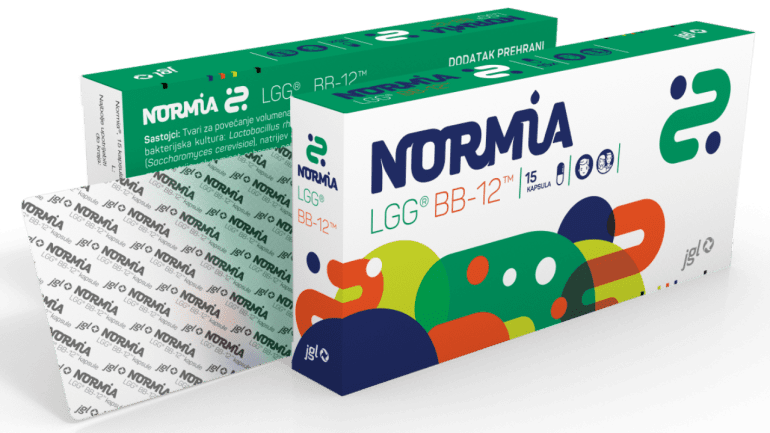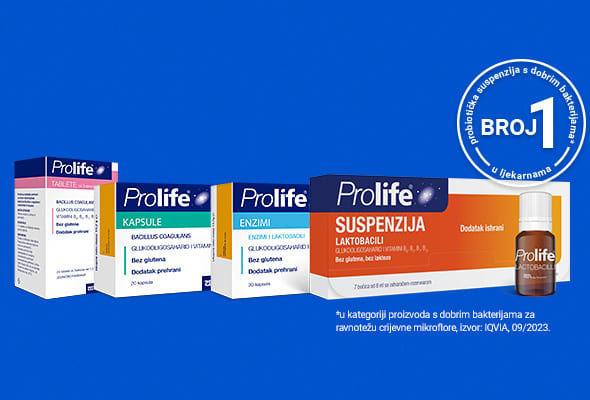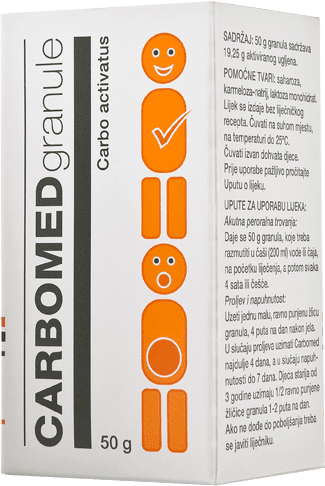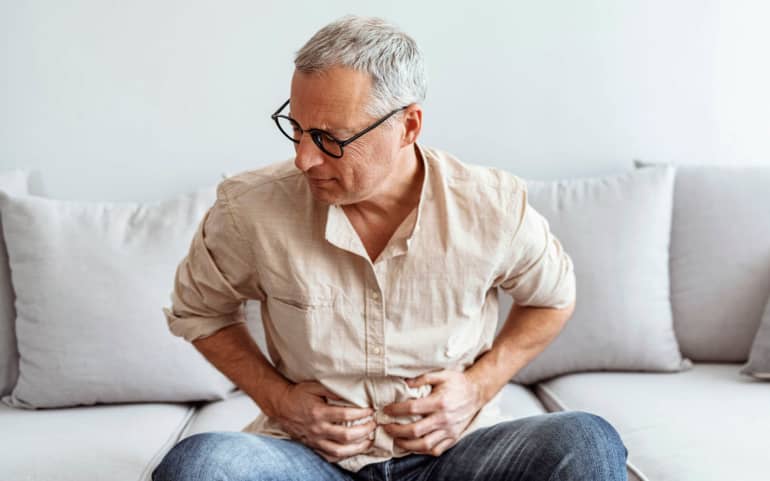Peptic ulcers occur when the wall of these organs gets damaged due to aggressive action of the gastric fluid. The breakdown of own mucous membranes (autodigestion) is a result of an imbalance of aggressive factors that normally occur in the stomach (hydrochloric acid and pepsin), typically used for food digestion and mucosal defence.
There are multiple causes (factors) that lead to disorder of balance between aggressive and defensive factors in the digestive tract. Among the most important causes is the infection with the Helicobacter pylori (H. pylori) bacteria.
Another significant cause is long-term use of anti-inflammatory drugs, commonly called non-steroid anti-rheumatic drugs (NSAIDs). These drugs are used to treat pain, fever, all musculoskeletal diseases and thromboprophylaxis. Irregular diet, smoking and prolonged stress also play a role in ulcer development.
A typical symptom that indicates the presence of ulcer disease is pain in the abdomen (epigastric), which occurs immediately after a meal (in case of gastric ulcers) or a few hours after a meal (duodenal ulcers). The pain can occur on an empty stomach and at night (usually during the second half of the night).
Besides unpleasant symptoms that impair the patient’s quality of life, the disease may cause life-threatening complications. The most common complications are bleeding from an ulcer and ulcer perforation. Bleeding is a serious complication manifested by weakness, black stools or vomiting of blood. When perforation occurs, the walls of the digestive system are broken and gastric contents leak into the abdominal cavity causing severe pain, usually in the stomach. Both complications require emergency treatment carried out in hospitals.
The diagnosis of peptic ulcers is based primarily on tests for determining the existence of infection with the H. pylori bacteria, and when necessary, on specialist gastroenterological and endoscopic testing and examinations of the oesophagus, stomach and duodenum, which determine the existence of an ulcer.
Treatment of ulcer disease must begin with treatment against the H. pylori bacteria infection, of course, if its presence in the body is determined. The treatment includes the combined triple therapy containing a strong anti-secretory drug (called a proton pump inhibitor) which reduces stomach acid, and two antibiotics. The treatment lasts for 7 days, after which it usually continues with an anti-secretory medication for another three weeks.
In patients with no infection with H. pylori bacteria, the basis for treatment are anti-secretory drugs. They include antacids, H2 receptor antagonists and proton pump inhibitors. The antacids neutralize the acidic gastric content and are typically used as supplemental therapy along with other anti-secretory drugs. The H2 receptor blockers and proton pump inhibitors block acid secretion. The mechanism of their action is very similar, but proton pump inhibitors are more effective and act faster, so we can say that proton pump inhibitors are the drug of choice for treating this disease.
During therapy it is necessary to remove (if possible) all other ulcer development risk factors – anti-inflammatory drugs, smoking and stress, etc.
There are no strict recommendations about diet, but it must be balanced. Foods which cause disturbances and abdominal pain should be avoided.










